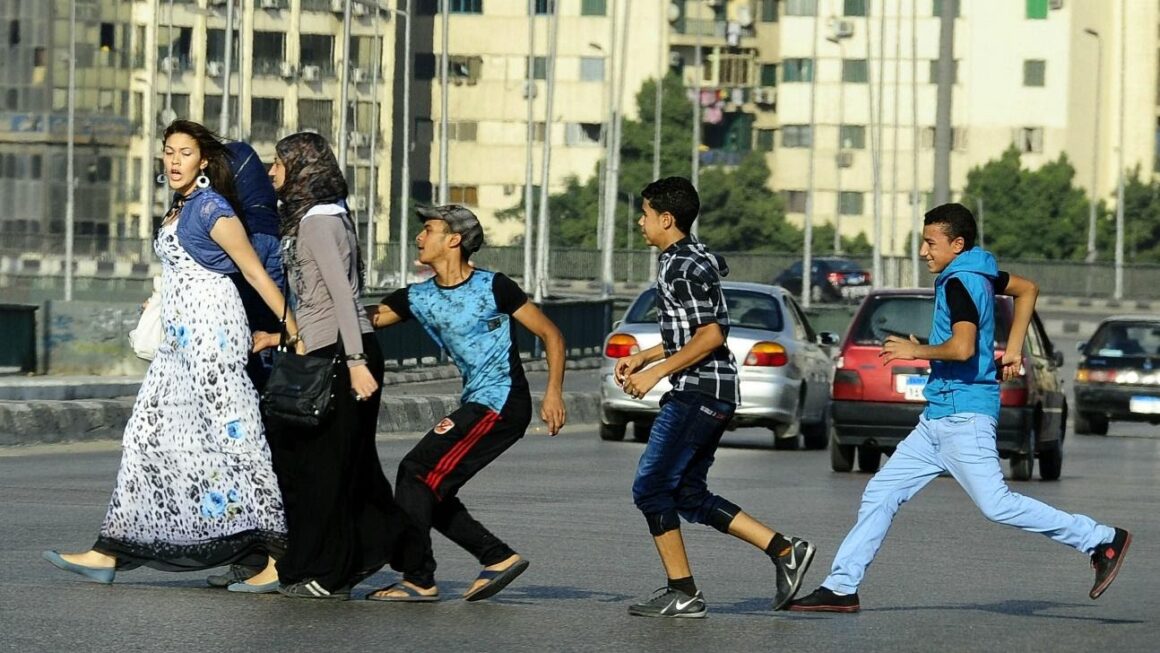The level of access to public spaces as a matter of course for women and men is a significant reflection of gender practices and the degree of gender equality in a given society. From Algeria to Egypt, Nigeria, Iran and even Indonesia and Malaysia – where historically women enjoyed significant freedom of movement – conservatives and political Islamists claim that religious dictates require the exclusion of women from public space, and the imposition of restrictive dress codes and gender roles. WLUML’s Women (Re)Claiming Public Spaces program aims to raise awareness of local efforts to reclaim public spaces in Muslim contexts, and to support feminist organizing for greater autonomy in and access for women in public spaces.
The word space is used here as a social construct, including but not limited to place, arena, time, ability to freely think and act, to participate in and watch sports and games in groups and alone in public arenas, to use public transport, to drive or bicycle or use any form of transport on public roads, to be represented in public media, cinema and any virtual arena. Since the presence of women in public spaces is to varying degrees limited in most societies, women’s public presence has both symbolic and actual value, indicating flexibility, openness, ‘tolerance’ and democratization, particularly in many Muslim contexts, where public spaces have been assumed to be primarily male spaces.
Women have learned through centuries of struggle that public visibility is the first step in establishing their rights as citizens. Since the early twentieth century women have been contesting their limited access to public spaces and taking steps to claim their rightful place in public arenas. In many post-colonial Muslim and non-Muslim contexts, constituencies of women that were politicized in the course of anti-colonial movements demanded access to public space, pushed for a refashioning women’s roles,for their incorporation in public life and for an acknowledgment of women as full citizens .To varying degrees, the newly established states supported and promoted these demands on the assumption that modernity required women’s presence in public life.
However, since the end of 1970s with the ascendance of political Islamists to state power, sexual politics has emerged more pronouncedly at the center of debate on women’s rights in everyday matters. Political Islamists have deemed women’s bodies and bodily movements a source of chaos which arouses male sexual desire and creates social disorder in public spaces. From Algeria to Egypt, Nigeria, Iran, and even Indonesia and Malaysia where historically women enjoyed significant freedom of movement and access to the public sphere, conservatives and political Islamists claim that religious dictates require the exclusion of women from public space and the imposition of restrictive dress codes and gender roles.
It is in this context that WLUML is launching a program on women in public spaces. Given the heterogeneity of states and political forces, as well as the variations in degrees of the establishment of gender equality and women’s rights in Muslim societies, it is important that proponents of gender equity devise context-specific strategies to achieve their goals. This requires a better mapping of the types of barriers facing women in these diverse contexts. It is also crucial to increase collective knowledge of effective strategies by sharing and documenting the legal, formal, informal and various individual strategies that supporters of gender equality across contexts have devised.
This project aims to:
- Document and share various barriers that women face in public spaces, particularly in Muslim contexts.
- Develop a mapping and comparative analysis of cultural, religious and ideological justifications that are put forward to justify harassment or impunity for harassment and co-develop contextually appropriate arguments to dislodge these justifications.
- Share and document local feminist initiatives and tactics to (re)claim access to public space.
- Highlight different ways in which women can hold states and private actors accountable for the safety of public spaces (including national and international law, but also cultural and religious re-interpretation through debate and public discourse).
- Share knowledge of the history of women’s access to public spacesand to means of transport like bicycles and motorcycles (which, as less expensive ways of getting around, are more easily accessible for women – and yet almost in all Muslim contexts women are prevented either legally and/or socially to ride on public roads).
- Co-develop context-specific policy guidelines to support gender justice advocates in their efforts to make public spaces safe for women and promote women’s public participation, feminist organizing, and rights to freedom of assembly and association.


